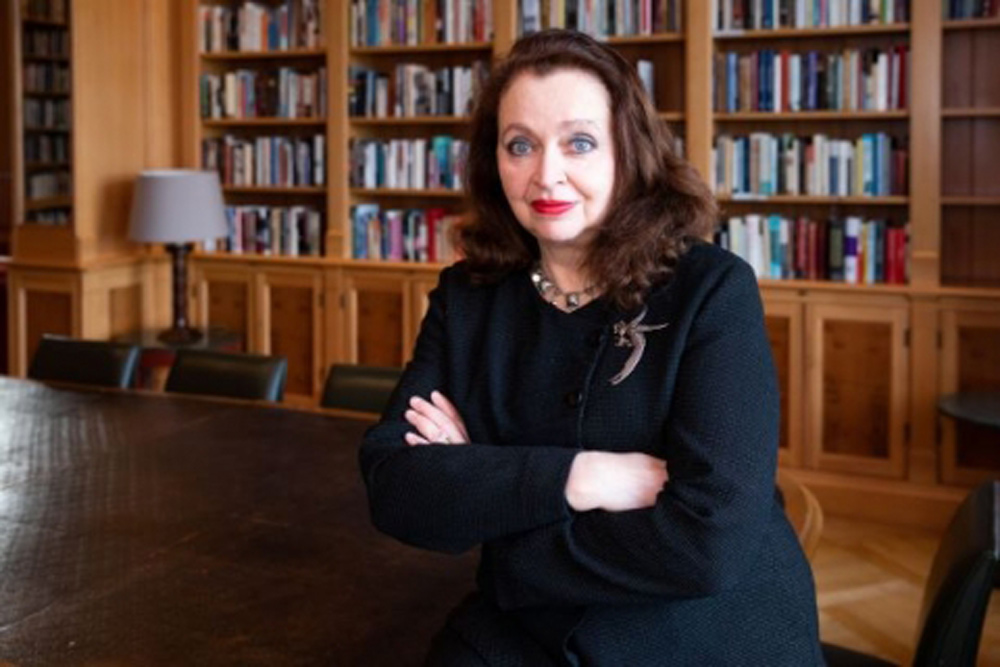Five Reasons Ghost Stories Will Never Die
Why are ghosts such a persistent presence in literature? Professor Liliane Weissberg, who teaches the course The Fantastic and the Uncanny in Literature, shares her thoughts.
Charles Dickens did it. So did Emily Brontë and Toni Morrison. Henry James and M.R. James (no relation) did it, along with Washington Irving and J.R.R. Tolkien and Homer. And, of course, William Shakespeare, who did it over and over, from Hamlet’s father to Banquo to great Caesar’s ghost.
Why do writers include ghosts in their stories, throughout time and across cultures? What do they signify? Why do they fascinate?
Liliane Weissberg, Christopher H. Browne Distinguished Professor of German and Comparative Literature, knows something about ghosts, regularly teaching the course The Fantastic and the Uncanny in Literature: Ghosts, Spirits, and Machines. (She also may have lived next door to one, according to her neighbor, a descendant of General George Meade who claimed to share his house with the ghosts of Meade and some other Civil War soldiers.)
Weissberg’s interests focus on late 18th century to early 20th century German literature and philosophy. Much of her work deals with German-Jewish Studies, but she has also written on the German Enlightenment, European and American Romanticism, German realism, and visual studies. She studies ghosts primarily in works of Western European and American literature. The Fantastic and the Uncanny covers English, American, German, and French literature from the past several hundred years.
Here Weissberg shares five reasons ghost stories may never die.
1. These eternal beings have changed and adapted over the centuries.
In early English novels by Horace Walpole or William Beckford, the existence of ghosts is taken for granted. They become characters in the plot, non-human beings who can interfere in people’s lives and cast judgment over their actions. In later novels and stories, the characters—and readers, too—are less sure whether ghosts exist; in work by authors like Edgar Allan Poe or Nathaniel Hawthorne, we are made to doubt the witnesses and question their sanity.
Of course, literary works can refer to one another, and ghosts can travel across countries and centuries this way. The ghost in William Shakespeare’s Hamlet, for example, has been referenced in many works, and not just in English literature. German Romantic writers loved to refer to Shakespeare, for example, and made the ghost in Hamlet quite their own.
Like human beings, ghosts fit in with their time. They do not have to inhabit old castles anymore. What remains constant for us is the fear of our own death, and the comfort that we may take in thinking of a world beyond—even if those ghosts are not always pleasant.
2. Freud has something to say.
Ghost stories tap into basic human fears, and often bring us back to our childhood. But they also offer some psychological truths. I study the work of Sigmund Freud, and the concept of the uncanny is crucial for his psychoanalytic theory; the feeling of being at home and not being at home at the same time, the defamiliarization of the everyday, the repetition of the no longer expected.
Freud was particularly interested in the figure of the revenant, people who return, even after their deaths. Memory plays a role here, of course, but also the need to work out relationships and rethink events. One can argue that some of his case studies are ghost stories as well.
3. More than scaring us, ghosts unsettle us.
Events that cannot be explained cast a new light on what we may consider “real.” They can make us reorient our views, think of new options and possibilities. Creativity works this way.
4. Different ghosts for different folks.
I assume that different people are attracted to different aspects of the supernatural. Children may like to get scared and learn how to conquer their fear and take charge of their own lives. As adults, we may just settle for good-natured ghosts, and believe (or hope) that a computer may have magical powers and write our essays on its own.
5. They remind us of the unknown—and possibly unknowable.
We prefer to be able to explain everything. I am currently curating a large exhibition, “What Is Enlightenment? Questions for the 18th Century,” for the German Historical Museum in Berlin, and many Enlightenment thinkers believed in the progress of science, in facts, in the power of reason. Others would voice doubt and be less sure that everything can be known. It was a time of the veneration of Isaac Newton, and of Swedenborg’s spirit seers as well. We may not want to believe in ghosts, but we should also be modest about what we can know.



